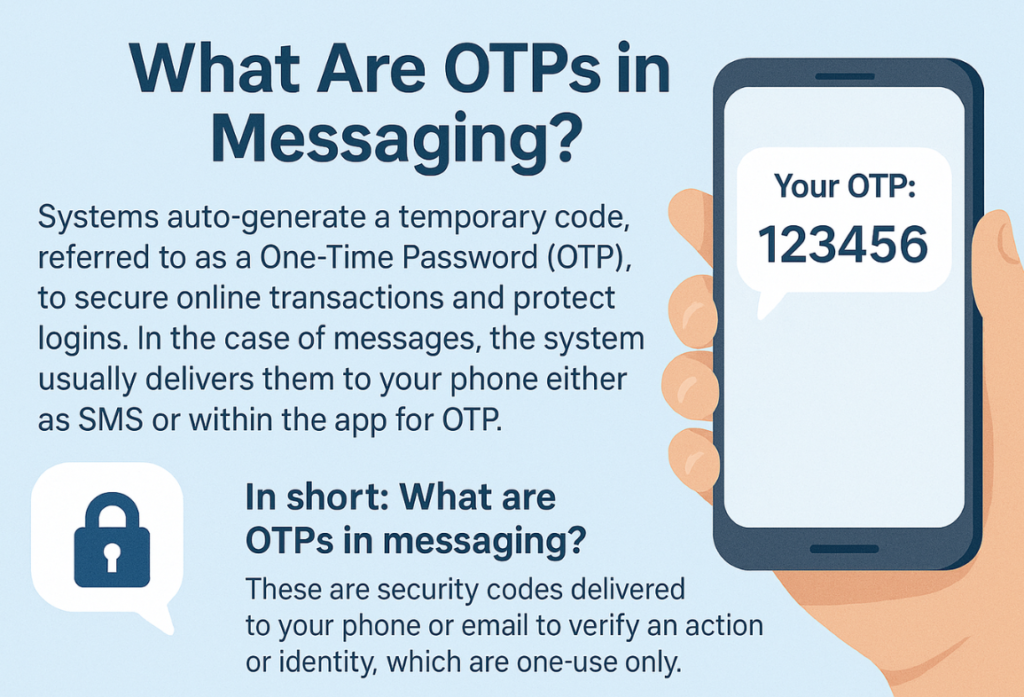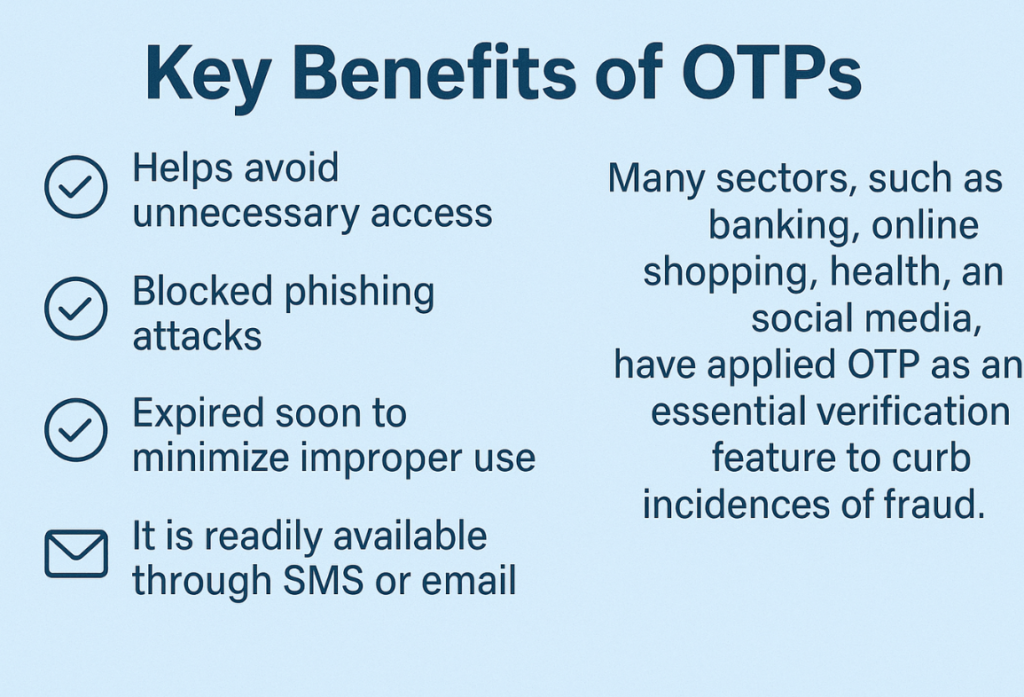he concern about internet security is essential in today’s digital world. OTPs (One-Time Passwords) have become an important component when you sign into your bank account, when making online purchases, or when authenticating identity via a mobile application. However, precisely what are OTPs in messaging, and what makes them so widely applied?
So, what are OTPs and how do they work, why are they important, and how can you use them to stay secure?
Table of Contents
What Are OTPs in Messaging?

Systems auto-generate a temporary code, referred to as a One-Time Password (OTP), to secure online transactions and protect logins. In the case of messages, the system usually delivers them to your phone either as SMS or within the app for OTP.
- In short: What are OTPs in messaging? The system sends security codes via phone number or email to confirm an action or identity, and users can use them only once.
Why OTPs Are Essential for Online Security
By knowing what OTPs are in messaging, you can guard your accounts more effectively. 2FA creates an additional security layer to your password by utilizing OTPs.

Key Benefits of OTPs:
- Helps avoid unnecessary access
- Blocked phishing attacks
- Expired soon to minimize improper use
- It is readily available through SMS or email.
Many sectors, such as banking, online shopping, health, and social media, have applied OTP as an essential verification feature to curb incidences of fraud.
How OTPs Work in Messaging
After trying to log in, make a payment, or retrieve your account, a one-time OTP is created and forwarded to your phone through SMS or app message. You will have to input this code within a limited period (which usually varies between 1 and 5 minutes).
Once you use the code, it becomes time-sensitive and loses its usefulness, which is what makes it a one-time password.
Common OTP Delivery Methods:
- SMS OTPs: Text message OTPs
- Email OTPs: You must do it through the email you registered with
- Authenticator Apps: The device (e.g., Google Authenticator) creates OTPs.
- Push Notifications: App services could offer these.
OTPs in Messaging: Practical Applications
So now you are curious to know what are OTPs in messaging? These are some typical situations:
| Platform Type | Example Use Case |
| Online Banking | Confirming large transactions |
| Social Media | Logging in from a new device |
| E-commerce | Verifying checkout or address updates |
| Government Portals | Submitting official documents |
| Email Services | Resetting a forgotten password |
Are OTPs Safe?
OTP is rather a powerful tool; however, it is not indestructible. Hackers can try sim-swapping, phishing, or code intercepting through malware.
How to Stay Safe:
- You should never give your OTP to anyone.
- Do not visit links you do not recognize.
- What you can do better is use app-based OTPs.
- Allow the use of 2FA across key accounts.
Knowing what OTPs are in messaging also signifies knowing what they are not and how to protect yourself better digitally.
Conclusion: Why OTPs in Messaging Still Matter
In summary, what are OTPs in messaging? They are temporary, machine-generated codes delivered to your phone or email, and can be considered another layer of security on internet transactions. By logging in, making a payment, or even verifying your identity, OTPs make sure you are always a step ahead of hackers.
- Final tip: Wisely use OTPs, in combination with strong passwords, and enable multi-factor authentication to achieve the highest level of security.
FAQs
Q1: What are OTPs in messaging used for?
Ans: You will use an OTP to prove your identity when logging in, making a payment, or recovering your account.
Q2: How long does an OTP stay valid?
Ans: The expiration range of most OTPs is 30 seconds to 5 minutes, depending on the platform.
Q3: Can someone hack my OTP?
Ans: Only when you share it or fall victim to SIM-swap or phishing. Never give out your OTP.
Q4: Is SMS OTP safer than email OTP?
Ans: SMS OTP is convenient and has lower security than authenticator apps; codes are generated on the phone rather than the cloud.
Q5: Are OTPs used in WhatsApp and Facebook?
Ans: Yes, Applications such as WhatsApp and Facebook use OTPs to verify identity, particularly on new devices when one logs in.
